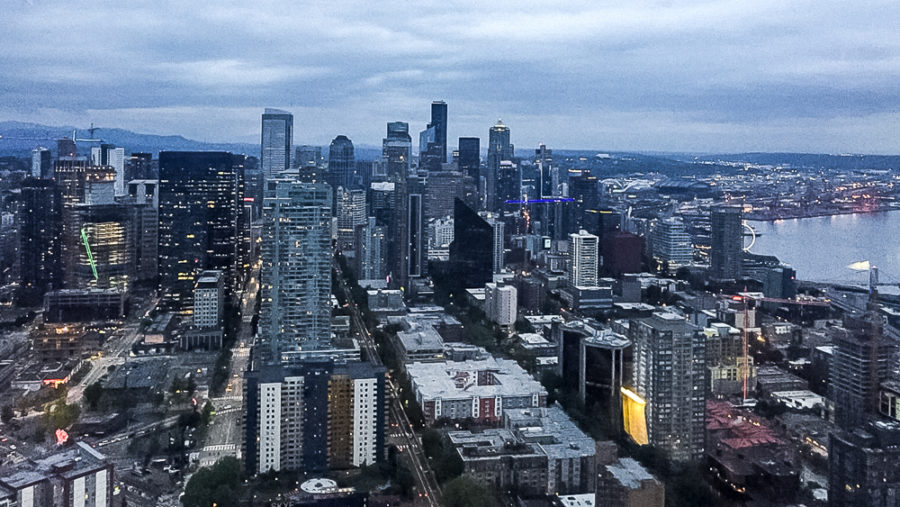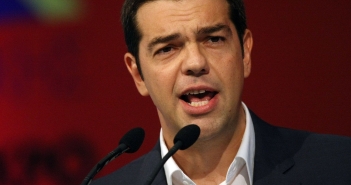I am sitting on a Frontier flight, a low-cost U.S. airline – basically the American Ryanair – my girlfriend beside me and Tiziano Terzani’s book, Lettere contro la guerra (Letters against the war, 2002) in my hands. We are flying to Seattle. I capture her attention by nudging her with my elbow to read and translate a passage in which Terzani describes, very accurately, what we nowadays refer to as ISIS. The letter I am reading is dated September 14th 2001, just three days after the Twin Towers attack on 9/11.
I suddenly realise how one just needs to travel in order to know different cultures and realities; to understand the inefficiency of anti-immigration policies now regulating the movements of mankind. Something is just not working. Terzani understood this after a life spent in Asia, where he was a war correspondent for several European press agencies. He interacted and talked with politicians, philosophers, soldiers and even Afghan jihadists, trying to understand perspectives unknown, misunderstood or veiled in mystery.
People put in charge of handling and regulating immigration often treat travellers with unprovoked skepticism. Is it that they have never left their native countries and experienced life abroad?
The week before our flight to Seattle, I was detained for three long hours in Denver International Airport. They brought me to one of those small rooms that make you feel guilty even if you have done absolutely nothing wrong.
I was subjected to an intimidating interrogation by American Immigration, and after document and visa checks, fingerprints and a retinal scan, I was told that I could not pass through because I had not booked a return ticket to Europe.
I had not booked a return flight because I did not yet know the duration of my stay, but I assured them I was aware of the three month limit. The guards informed me that my ESTA visa requires a return flight.
Though I have never travelled inter-continentally before, I was made aware of these types of issues. Many friends had told me of their experiences, so I carefully checked online and asked around to be sure I had everything needed for travel into the U.S..
How could I have forgotten to check these important details? Tired and stunned by the long flight, I gently asked the officer where it was indicated that I must have a return flight. She only reiterated that it was ‘mandatory’, though I could not find it written anywhere.
Was I being bullied? Was an Italian musician not their ideal tourist? Perhaps it was my lack of cash in hand that appeared suspicious. Whatever the reason, if a return flight is mandatory to enter the country, should it be tucked away in obscure small print?
I next attempted to text my girlfriend so she should know I had been detained by immigration, and was running late. The guard accused me of lying and promptly confiscated my phone, arguing that I was not allowed to text while in their custody.
They demanded I purchase a return ticket, as my backpack was meticulously inspected. The agent, half-smilingly, asked me why I had a backpack full of music gear. I explained I was a musician carrying a portable studio in order to record an album. He suggested I might attempt to work as a D.J..
They proceeded to ask me a plethora of questions about my girlfriend, and any additional contacts I had in the U.S.. Eventually, they found me a return flight to Europe for $3,000. They insisted that I purchase it immediately in order to be given leave to enter the country. But I refused to buy a flight at that price, so they found me a $300 flight to London, which I agreed to purchase.
Once I received my return flight confirmation, they completely changed their tune, wishing me an amazing holiday in the USA!
Denver’s airport is located in a clearing east of the city. From the big windows, through the summer mist, you can lose yourself for miles in the outline of the Rocky Mountains. Ironically, the sound of Native American flute and drum music hums through the corridor. I find that strange, for obvious reasons of cultural and actual genocide. My contemplation of the vastness and beauty of the country I had just landed in was being spoiled by the long wait in a small cold, sad interrogation room.
After such a welcome, I expected to find a heavily-guarded country; some sort of gigantic Switzerland, but the reality is far more chaotic.
Areas of Denver around Capitol Hill and Broadway are full of homeless people, completely abandoned to their own destiny. There are so many of them. This is a city within a city, where people protect themselves from the burning June sun in the shade of trees. I understand even more the enormity of this country.
Dublin, where I live, is now sadly notorious for having a homeless emergency, and this problem is evident all over Europe. But beside what I met in the U.S., it is nothing.
Walking around town, I met various strange souls and colourful characters, which just seems to be the norm. It is as though the ‘American Dream’ shoots out in all directions, with no clear destination. There is obviously the ‘freedom’ of becoming a high level manager, or a careless financial broker with limitless riches, but then there is also the ‘freedom’ of living with empty pockets.
The homeless pitch their tents pretty much everywhere in the big cities. In Seattle, for example, all along the coast, tents surround every column supporting the Alaskan Way Viaduct above.
We can donate to homeless charities, and those organisations still exist, so we can help them on an individual level. But the problem is more visible than ever, and it does not seem like there is a way of escaping this social pattern.
The Western Empire, that is the United States, has exerted enormous influence over the world over the last seventy years. Ultimately, however, its interests do not align with humanity, including American citizens.
Supporting the idea that there is a general disregard for people, is the great American drama of discriminatory healthcare. If you can afford to pay thousands of dollars for insurance, you can have the very best, overpriced, innovative treatment in the world. If you cannot, you risk bankruptcy by paying prohibitive fees, or suffer in silence.
Low income individuals can still apply for Medicaid, which is government-funded healthcare. They are, however, lucky to find anyone who will go ahead with it due to the excruciatingly time-consuming billing process.
There is an unacceptable lack of government-funded healthcare in a state which, only this year, under Donald Trump’s administration, invested $700 billion on ‘defence’ programs. Are new and more powerful weapons to be the highest aspiration of the richest country in the world?
To justify this level of government spending, you will always need an enemy. But throughout its history, the most powerful army in the world has always prevailed. Is immigration to be the new enemy? This would make sense when taking into account the devastating possibilities of modern warfare.
As Vladimir Putin suggested in an interview with Oliver Stone, war at this level will have no winners, conflict between nuclear powers can only end with the destruction of the planet.
Millions of people are now on the move around the world: seeking employment or just a more fulfilling life; or trying to escape the horrors of war, racial and political intimidation, or like me, simply visiting a partner.
How can the rest of the world look towards the West with hope if these are the social dynamics? How can we pretend that this so-called democratic society of America is the leading example of humanity, and not an arrogant menace?




